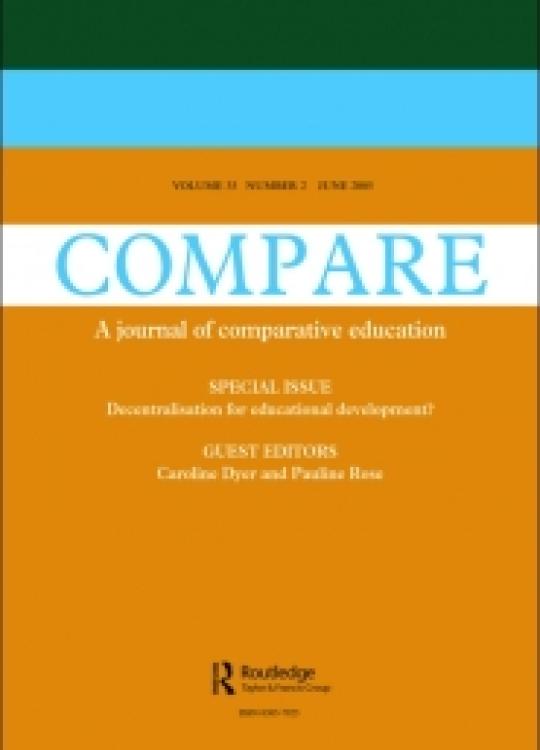
Breadcrumb
Effect of preschool education on cognitive achievement and subjective wellbeing at age 12: evidence from India
This mixed methods study draws upon Young Lives India longitudinal data to analyse whether children who attended private preschools demonstrate higher cognitive skills and enhanced subjective wellbeing at the age of 12 compared to those who attended government preschools in India. Using linear logistic regression models, the analysis reveals that children who attended private preschools have significantly higher mathematics scores and more positive subjective wellbeing than those in government preschools. The propensity score matching technique further substantiates this finding. Furthermore, entering preschool before the age of 4 is shown to have a significant positive association with both cognitive achievement and subjective wellbeing at the age of 12. Given that the recently enacted National Policy on Early Childhood Care and Education recognises early childhood education as the foundation for all future learning and as a sorely neglected area, early childhood education must be prioritised by policymakers across public and private sector.
This research is published in Compare: A Journal of Comparative and International Education (2018). Citation: Renu Singh & Protap Mukherjee (2018): Effect of preschool education on cognitive achievement and subjective wellbeing at age 12: evidence from India, Compare: A Journal of Comparative and International Education

